25 Travel Myths That Cost You Time, Money and Peace of Mind
When we first started traveling, we found out quite quickly that everyone has some advice about travel. It’s taken us a few years and more than a few miles to realize that a lot of the travel myths we heard were just simply wrong.
Here’s a list of the top 25 travel myths that have cost us time and money, or given us headaches during our trips.
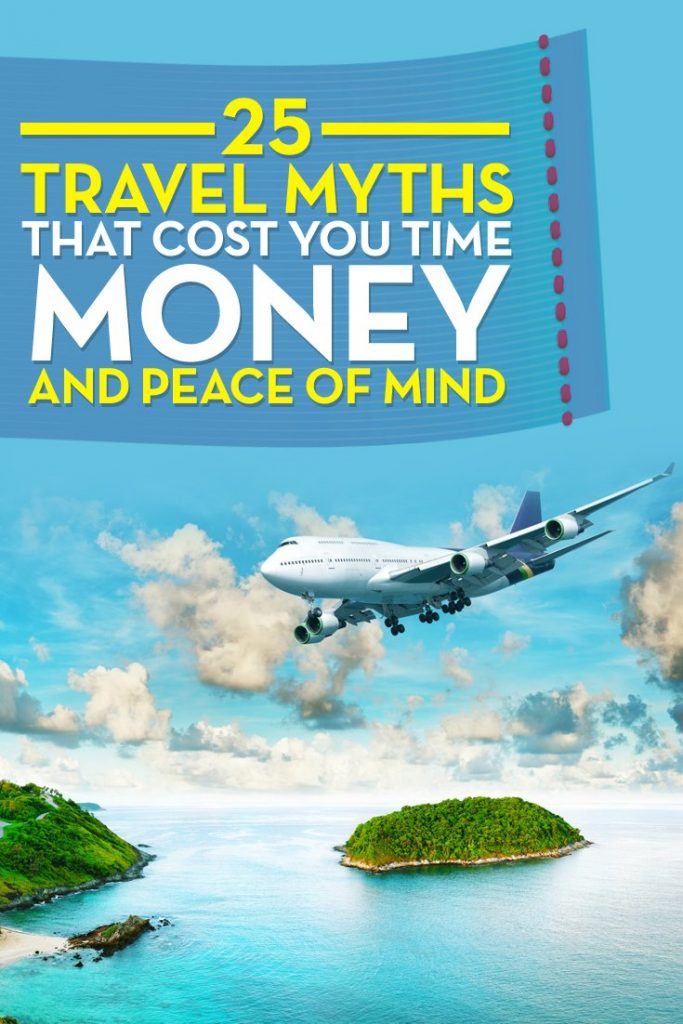
To get the best deal, you should book your vacation months in advance.
If you have a bit of flexibility in your dates and destination, we’ve found that last minute deals with airlines and all inclusive packages almost always beat booking a few months ahead.
Board early with kids.
While this may be great for parents with babies, as our kids get older, the last thing we want to do is spend an extra half hour on the plane. Instead, we let our little ones run around in the airport’s play area to burn off some energy. We’re usually some of the last people on the plane.
Bring travelers checks for emergencies.
These days, travelers checks are nothing but a cumbersome pain in the arse. It’s hard to find someone to accept them, and getting them usually means wasting time in a bank. ATMs are almost everywhere worldwide these days. Better advice is to keep a couple of hundred dollars cash well hidden for emergencies.
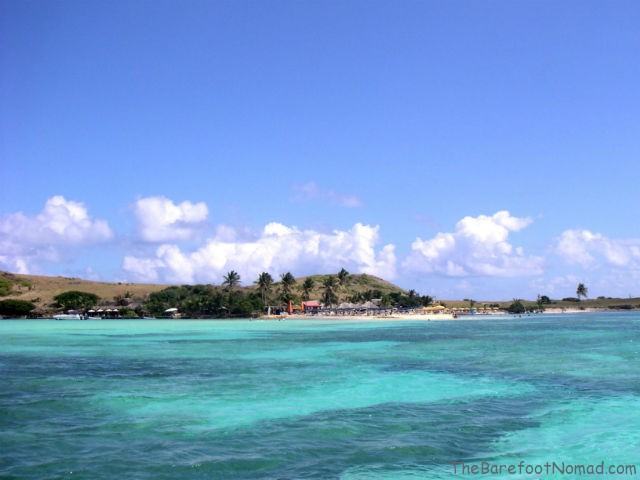
Travel is expensive.
Vacations, where you try to cram 52 weeks worth of relaxation and fun into two weeks at a resort in the Caribbean, are expensive. By traveling off season, renting apartments instead of hotels, and eating locally, you can actually travel for months for less than your last vacation.
Street food will make you sick.
We’ve had some of the best, freshest meals from street stalls in Thailand and Mexico. Make sure your food is well heated (or refrigerated), and look for the stand with the longest lineup, as the food is probably fresher and cooked to order.
Mexico is dangerous.
You could substitute Mexico for many countries, including Jamaica. You can travel to almost anywhere in Mexico (especially Cancun and Playa del Carmen) or Jamaica and be safe. There are some areas that are unsafe within each country (Citidad Juarez in Mexico for one), but there are unsafe areas in North American and Western Europe also.
Return flights are always cheaper than one way tickets.
For the most part, we’ve found that airlines don’t offer a discount for return flights these days. There may be exceptions, so always double check.
Trains are the cheapest way to travel through Europe.
Low cost airlines like Easyjet and RyanAir offer rock bottom flights within Europe, making them much cheaper for many journeys than taking the train.
Getting upgraded to first class is as easy as asking nicely and dressing like a movie star.
Airlines guard their first class cabins with fervor these days, saving the few upgrades for when their planes are overbooked, and only to their most loyal customers.
Cruises are all inclusive.
Many cruises have a steep charge for Internet access, and you’ll pay extra for non-alcoholic and alcoholic drinks, upgraded meals and shore excursions.
You’ll need an international drivers permit to drive anywhere overseas.
In many countries, especially Western Europe, a driver’s license from your home country is plenty, as long as you’re there less than six months.
Travel before you have children, because you can’t travel after you’ve had them.
While you may want to travel at a slower pace and plan a bit for long haul flights when you have kids, the truth is that kids make great traveling companions. We heard this myth constantly before we had our children, and honestly, it irritates me to no end. We’ve taken our children all over the world and I’m always surprised with how happy and adaptable they are on the road.
Currency conversion rates are better at your bank at home.
Fact is, many banks offer poor currency conversion rates and tack on surcharges and commissions. We’ve found some of the best currency conversion rates by using our credit cards overseas. Just call your credit card company to ensure that they don’t have any fees for transactions made overseas (some companies charge 2 to 3% on every transaction). Also beware of dynamic currency conversion, where foreign merchants charge you a hefty exchange rate to convert your bill into your local currency.
Airports and terminals also tend to charge a bit more to convert cash than a place down the street. If you can, only change what you need for the immediate future once you land in a foreign city and convert the rest later. Even better, find an ATM and just grab some cash directly from your account. Usually the rate is as good as you’ll get at home (sometimes even better if the money is fluctuating). Just beware of extra fees if your bank charges differently for foreign ATM transactions, and know the foreign ATM may charge an extra fee.
Locals always know the best restaurants, hotels and attractions.
While we’ve found some real gems by asking locals, not every local is an expert. In fact, locals on the road are a lot like at home. Some know their stuff and some don’t. Also, how often do locals stay at a hotel in their own city or even go to certain attractions? Sometimes you’re better to ask a fellow traveler.
You’ll be pickpocketed in a foreign city.
Sure, and you could be pickpocketed at home, too. You probably have as much chance of being pickpocketed at a busy event in your home town as you do in a random city overseas. Sure, some areas are well known for pickpockets, but most of the world is as safe as at home. Take some basic precautions like using a money belt or neck wallet in areas known for pickpockets.
Jet lag can be cured by getting a lot of sleep.
No, no and no. What you need to do is reset your circadian rhythm. We’ve always battled jet lag by trying to get as much sunshine and exercise as we can manage on our first few days in a new place, and making naps as short as possible. Works like a charm to reset our inner clocks.
Take a tour, and you’ll be shuttled around like cattle and have a horrid, inauthentic experience.
While some tours hold true to this stereotype, there’s a growing movement toward small group tours led by experienced local guides. A good tour guide can give you priceless insider information.
English is a second language everywhere.
While English is widely spoken, there are large portions of the world where you’ll find that not a single person around you speaks a word of English. We’ve found this to be more true in rural areas, and areas that aren’t visited by many tourists. The good news? It’s amazing what a few smiles and pantomiming can get you.
Duty free shops are always cheaper.
Sometimes duty free is a great deal, but many times duty free shops are more expensive than buying locally.
Luxury hotels are worth every penny.
While some luxury hotels are overflowing with amazing rooms, stunning locations, and stellar staff, many are a big fat ripoff. Don’t assume that a big price tag means stellar service, free hotel amenities and top notch accommodation. We’ve also found that the more expensive the hotel, the more likely they’ll charge for conveniences like WiFi, parking and breakfasts.
Package deals are always the cheapest.
While package deals are often an amazing deal, especially all inclusive packages, many deals are just marketing ploys. Do your homework and price out all the components of a package separately, and you may be surprised that you’re paying more for the package.
Stand by fares are a great deal.
While this may have been true in the past, airlines these days are just as likely to ask for a premium for that last minute fare. And don’t expect to get a last second cruise deal. Because of increased security concerns, most cruises need to have their passenger list several days before sailing, so the best deals are a week or so before sailing.
Hotel key cards have all your personal information coded on them, including credit card numbers.
Nope. Hotel key cards just have a code that will open your door and some basic personal information. If you’re worried about it, just keep the card and destroy it when you have the chance. Hotels don’t usually care if you give the cards back or not.
You need to stay in a hostel, eat street food and wander the streets aimlessly for hours on end to have an authentic travel experience.
While we’ve had some amazing adventures doing just this, we’ve also had experiences where we connected with the local people and culture when we rented a comfy condo, ate at local restaurants, and even (gasp!) took an organized tour or two.
It’s not safe to travel alone.
Traveling by yourself can be intimidating, but it’s entirely possible, and certainly possible to do safely.
Have you been burned by a travel myth? If so we’d love to know!
The Solo Travel Handbook from Lonely Planet


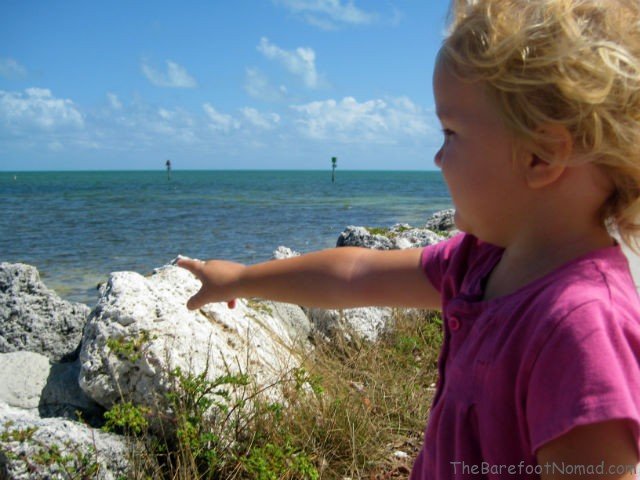


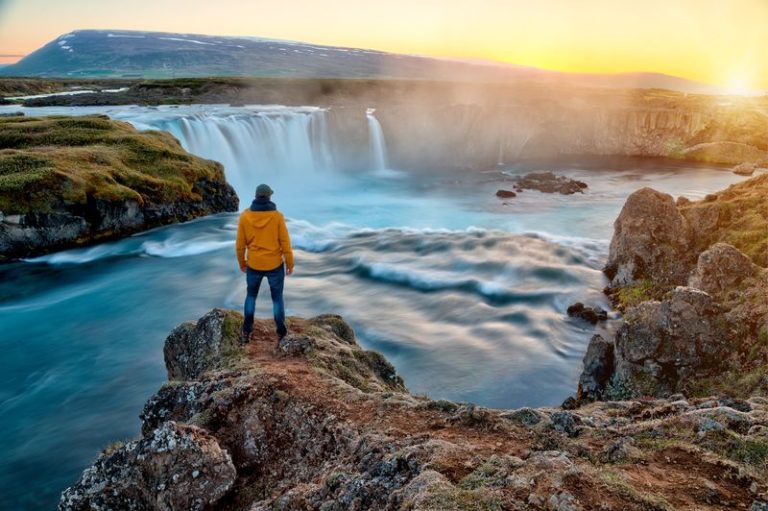
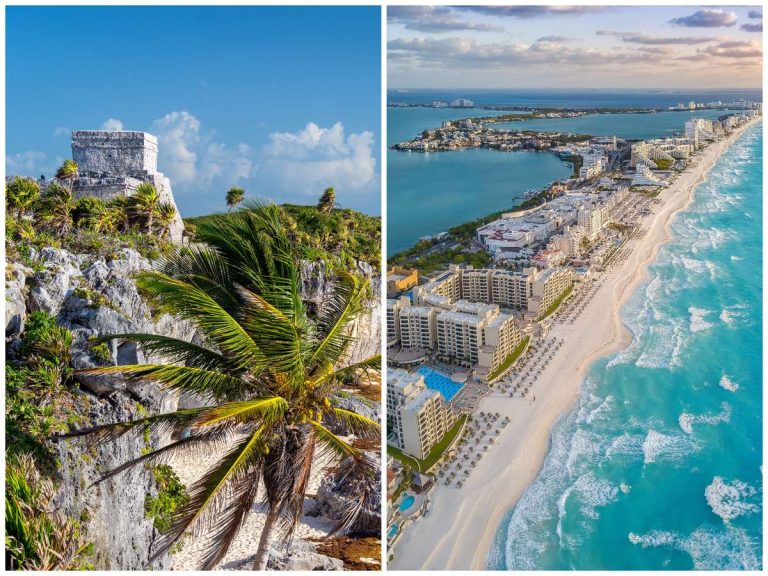


excellent tips!
Thanks, guys 🙂
you mention, “You can travel to almost anywhere in Mexico or Jamaica and be safe.” That’s not what I heard. I see stories of Mexican cities that are like war zones everyday on tv. And I understand that the cartels rule the southern part of the country with an iron fist. Yes, most of these troublesome cities are border towns w/the US like Laredo & Ciudad Juarez and political & social reasons are why they are so crazy violent; but I imagine that if I tried to drive from the Texas border into Mexico, thru Mexico, and onto Guatemala, into Central America, and eventually South America that I wouldn’t make it past Mexico City with my life or having my car seized by crooked cops. I’ve often thought about driving down to Central America. Most Americans don’t even realize its entirely possible to drive to South America, but if I dared do it, I would not expect to ever see home again, especially in one peice. But if I had reasonable assurance that it would be safe to do so, I might actually consider doing it. I know to stay the heck out of El Salvador for fear of certain violence. Please advise.
Hi Kenneth,
We’ve spent half a year at times south of the American border and have survived unscathed. Sure, there are dangerous areas in any country however we personally know more than a few people (alone or with their families) who have driven from Alaska to the tip of South America without any problems whatsoever. We even know a few people who have done a good portion of it on a bike!
As to Mexico being dangerous and the southern cartels, yes they exist however, for the most part, they aren’t interested in tourists. Also, some of the areas with the most unrest are near borders and the majority of the country is unaffected. For example I often felt more anxious for my parents who wintered down in Texas near the border than we ever did after months in deeper Mexico.
If you’re worried about driving south yourself, there are other options like with a large caravan of fellow travelers with the idea being safety in numbers. Judging from the amount of vehicles with Canadian and American license plates we’ve seen, it would seem lots of North Americans have survived with their life intact and continued to do so year after year.
You can check out sites like U.S. Passports and Visas for warnings and advisories on international travel as well as the Government of Canada’s Travel Alerts page.
As to driving down to South America, you might have a problem around Darien Gap but other than that it’s definitely doable. Just search Google for forums of travelers driving to South America for a lot of discussions as to areas to avoid and areas to see.
Good luck and safe travels!
Hi Micki,
Love this, there are a lot of myths around. I think I’m the only person in the world who put on weight when travelling in India – and I ate a lot of street food too:)
Finding out not everyone speaks English is a great wake up call though – and an excuse to practice other non-verbal forms of communication;)
Hi Annabel,
I find there are a lot of myths about life in general, not just travel :).
Trying to speak some of the local language goes a long way has worked well for me. Most people seem to appreciate that I’m making an effort (or they’re amused by how truly bad my pronunciation is…).
Keep the ‘non-verbal’ repertoire handy for places where little or no English is spoken, but why not take the trouble to learn a few basic phrases in the vernacular? My wife and I learnt Greek because we went there regularly on holiday and almost without exception, (even if they spoke English a bit), the locals loved us for TRYING to use THEIR language
Nice list. And you’re right — hotel keycards are as harmless as playing cards.
Hi Terry! Thanks for the verification – you’re definitely in the know 🙂
Thanks for the great advice. Having now done two trips with our children I think one of the great things is that having your kids with you means that you DO slow down and take more time to do things.
As a result you can have more of the ‘in between’ special moments, and also the kids perspective on the world can really provide some different insight.
Kids are a fabulous filter on the world, it’s true. I find myself struggling to explain some things to our kids (especially when we see homeless people or someone begging).
Excellent advice – you’ve obviously travelled far and wide enough to know the ropes.
What resonates with me is your comment on pickpockets – in my city of Cape Town South Africa we are always faced with a perception that visitors are in danger from criminals but common sense is the best protection. One could add to your statement that visitors should always take safety advice from local hosts/concierges when venturing around beyond the hotel or guest house.
Love your comment on small tours with local expert guides – would love to offer you that service if you ever come here!
Hi Francoise,
One of the things I love most about travel is that there’s always something new to learn and experience.
Funny you should mention Cape Town! I’ve been researching visiting South Africa, and I’ve been running across a lot of references to safety. I imagine Cape Town is like any large city – safety really depends on where you are, and when. And great tip about asking a hotel staff or local hosts!
Right, absolutely great tips. Savvy travelers know these myths too well and it’s good of you to share this with us. Refreshing to know the real side.
Thanks!
Great list…it is so easy to adopt misconceptions about travel and destinations. You did a pretty good job of dispelling many of them:)
Hi D.J.
I think we all tend to operate on autopilot a bit. Life’s just too complicated to assess everything from scratch. That said, I think it’s important to keep our eyes open, and try to filter the good advice from the bad.
what a great post. I agree with everything you said, except that I cannot comment on the kids part (I’m still trying to do everything I can before I even decide to have them). But I have read plenty of success stories about parents taking their kids on the road. It is enlightening and great to see =)
However, I do have to say that some of these myths may come true if one lets common sense slip by (like Francoise said). 😉
– Maria Alexandra
the Nomadic Translator
While kids are fabulous to travel with, there are definitely things that are harder with them around!
It’s a smart idea to do some of the more dangerous or strenuous things before they come along. Since our kids are quite little, we can’t do many serious hikes or adventure activities unless we do them separately. Since Charles is my favorite travel companion by far, it’s just not as much fun to do these things with out him!
It seems like people have greatly over-exaggerated the pickpocket issue. Before you go, everyone makes it seem like you will practically be physically assaulted when you go to big tourist areas – but we are not finding this true at all! No one has bothered us besides the occasional person selling flowers, etc., but they go away when you say no.
Christina, that’s so nice to hear first hand. We’re planning a trip to Southern Europe this winter, and I’ve heard a lot of advice about pick pocketing.
This is a GREAT list, and I heartily agree… except for the travelers cheques advice. I think that travelers cheques ARE worth it to pack, after this robbery happened to me during my year of travel: http://www.aroundtheworldl.com/2010/06/08/yes-it-is-worth-it-to-pack-these/
Hi Lillie,
I’m so happy that you got your money back for your stolen traveler’s cheques. It’s nice to hear that they do work as promised!
I do stand by the fact that they’re a huge bother to exchange in many parts of the world like Southeast Asia and Mexico. That said, I imagine that they’d be easier to deal with in North America and Europe, so they may make more sense there?
I agree with you for most of these things, but most of all is travelers checks. Those things seem to be useless nowadays. The last time I used them, I ended up bringing 90% of them back to the states with me because I couldn’t use them.
Hi Cornelius,
That’s the major problem I’ve had with travelers checks as well. It’s been an enormous hassle to try and use them on the road. We’ve had to find a bank to cash them (couldn’t get a merchant to take them), and then pay fees to have them cashed in.
This is a great post Micki! The only thing I would add is to your comment on street food – the only place I would say to be super cautious with the stuff is in India, not so much because the food isn’t cooked through but more due to the water which most western stomachs can’t handle… even my most hardened stomached Indian friends from the UK can’t tolerate some the homeland’s street food! But that’s not to say you shouldn’t try..!
Good tip, Zarek. Yes, India would be a good place to be cautious. I’d also check to make sure plates are disposable or cleaned well. Charles and I traveled for months through Thailand, eating street food for almost every meal and never got sick from it. The only time I was sick was from a salad I ordered at a nice sit down restaurant (thinking that a higher end restaurant would be safe) and I was as sick as a dog with food poisoning from it.
I love these tips Micki! I wish I could forward them to everyone who’s ever asked me a stupid question or made a ridiculous comment about travel and taking kids on the road.
Hi Bethany,
I find that the “you can’t travel once you have kids” is one of the most common myths out there. It drives me nuts too!
These are all great tips, and some of them are news to me, even though I consider myself a somewhat savvy traveler.
Ava, you know, we learn something new every time we hit the road. The rules are always changing, too. I’ll bet in 10 years some of these don’t hold true anymore…
Great advice! I’ve been to Mexico and had no problems even while traveling alone through the country on public transit and I have been pickpocketed and robbed more times at home than anywhere abroad! Fear is one of the top reasons why many people don’t travel and these people are missing out on great experiences simply because they listen to a few bad experiences and ignore the fact that these things can happen anywhere…even at home!
Hi Andrea,
Fear is such a difficult myth to address, as it’s such a powerful motivation. It’s also extremely hard to argue against emotion with logic.
One more myth: French don’t speak English. No. They speak 🙂
Victor, that’s good to know! We should be in France sometime this winter, and my Canadian French is pretty rusty!
I’ve definitely heard all of these and learned that they aren’t true while traveling. They bother me because they stop people from even trying sometimes and some of them are quite ignorant! I think the ones that get me the most are traveling alone isn’t safe and traveling Europe by rail is cheapest. I really thought the second was true-not at all! Thanks for sharing this.
Hi Bobbi, We just found out that Europe by rail can be expensive ourselves! We’re looking at visiting Southern Europe this winter, and were planning on taking the train everywhere. After a look into costs of the four of us taking the train or flying everywhere, we’re considering buying a car in the UK and selling it when we leave.
I think you did a great job covering many of the myths and we agree with you. I think the only people who realize this are the ones that are out there traveling the world and connecting with the people and the culture.
We always try to learn the basics of the language of the country we are going to visit such as please, thank you, good morning, good bye, yes and no. It definitely helps and the people appreciate that you are trying. We have visited a number of places where we were the only ones speaking english, it always makes for an interesting time.
Trying to learn the basics of a language is such a great idea. Like you, we’ve found that that people appreciate that at least you’re trying, and that you’re showing some respect for their language and culture.
Good tips. I was surprised to find out about the cost of trains in Europe. You naturally think they’re going to be cheaper than airfares but they’re not. Which is a pity, because it’s much more fun to watch the world go by from a train seat. You need to be careful, though, because sometimes when add in the cost of getting to and from the airport (plus baggage, etc) the flights aren’t as cheap as you think.
I was shocked by the cost of trains in Europe, too. I think we’ll still try to find a discount fare and take at least one trip when we’re in Europe. I’ve been dreaming about a train trip for years!
Such a good tip about adding in the cost of getting to and from the airport!
Like most travel these days, train ticket prices are subject to the laws of supply and demand. It’s always a good idea to check both train and flight prices.
Excellent post! Love the thoroughness.
Thank you 🙂
Keane
Thanks so much, Keane!
I love everything on this list! Completely agree. Especially as I’m travelling alone, as a woman, in South America. I feel safer here than in some cities in Europe. Thanks for sharing, I hope people reading this take it on board!
Hi Emma,
It’s funny you should say that. South America is one of those areas of the world that are really stigmatized as dangerous, at least in Canada, but I’ve heard so many wonderful things about cities like Buenos Aires. Hope you’re having an absolutely wonderful time!
with school-aged children you are forced to travel during the holidays only — this means everything will be 3-4 times more expensive and you are calendar-bound
so, nope, this is not a myth (or just a half, if we consider kindergarten-aged children)
Not sure how we missed your comment DanielR however I have a need to reply to this.
IT IS a myth and another big one is that people “with school-aged children are forced to travel during the holidays only”.
We travel anytime we have the urge to do it and have never heard a negative comment from any teacher or principal. Kids learn so much from travel and good educators know this. Missing a few weeks of school won’t destroy any childs education unless they take off during exams and even then exams and tests can usually be rescheduled with proper notice.
We’ve traveled for days, weeks, months and nearly an entire school year with our kids and have not only seen them get by but also flourish. Nothing is stopping someone from doing pre-planned assignments, distance education, or even homeschooling while traveling if the kids are gone long enough. Sure, it’s more work than just being on holiday however the benefits are you aren’t time constrained in your travels or forced to pay ridiculous high season rates.
Even if we remained bound to the calendar school year, it wouldn’t stop us from traveling the world with our kids. It would simply mean we would need to plan better and perhaps save harder.
Traveling with kids IS POSSIBLE. Myth debunked.
I’d always point out to people that, as you say about train travel, a Eurail pass is not an automatic silver bullet that will save you billions of dollars. Seems like the kind of thing they just automatically assume they need and then they get to mountainous countries and have to pay for a bus ride instead. Meticulous research and planning may be boring, but it’s profitable!
Like OCDemon points out, Eurail passes are almost impossible to make work but Airports slow travel down like nothing else. If you’re targeting specific cities and know when you’ll be there, train travel can’t be beat. Especially if it’s under 600km. I found advance fairs on TGV in France extremely cheap and it’s such an efficient service. Also Thalys from Brussels – Cologne 1st class was a steal. I haven’t tried booking last minute though so maybe that’s where it gets dangerous.
Street food is awesome, travelers checks are useless = Totally Agree!
Some great tips amongst these. a couple I really like is
Tours – some tours are totally worth it. Some of the great information and places you see you would never work out by yourself if you had a week to research it by yourself. And the time you save!
Duty Free Shops – biggest rip off in the world!
Great advice. I would have thought the travelling with kids one was true but I havent travelled with kids so I don’t know. I completely agree about Mexico though. A great country
good list!
Great tips! I absolutely agree with you!
I was reading this post and nodding on every point!!!
Especially the one about how travelling long-term doesn’t need to be expensive – that’s the one I repeat to my friends almost every day.
All the others are right on point too.
We found that Canadian air fares are ridiculous…it was cheaper for us to train to USA, fly across USA, then taxi back into Canada.
Love your tips and found them to be true. ordering food in Japan and rural Singapore non-verbally was a wonderful experience.
Re: destroying card keys. Most hotels these days will charge a hefty amount for lost keys. (I’ve seen signs saying $100 US for lost keys) How much does it cost for each key when they have so many at a time? Card keys only need to be re-programmed and old fashioned keys can be cut for a couple of pounds (GBP). They always have spare ones and a bunch of pass keys for staff.
Nicolette, I think the problem is that it poses a security risk to the hotel since whoever finds the key could just walk in to the hotel and use the amenities and perhaps cause some damage. Most keys are only valid for a short time but even that is enough for someone to cause mischief. There’s also the hassle of cancelling and redoing the keys. Still, $100 does seem pretty excessive to me regardless.
Great read 😀
I love your tip about paying attention to internet connections on the travel. That seems really important for making sure that you always have coverage on your journey. I’ll have to get a travel agent to find me all the hotspots.
Appreciating the time and effort you put into your website and in depth information you offer. You’ve really covered up almost all the possible info that every travel enthusiast should follow who is so curious about traveling or backpacking anywhere. Worth sharing! Please continue sharing your updates! Thanks a lot!
It’s funny how there are so many myths, thank you for clarifying and debunking all of these, the article is very informative